post scarcity
description: after the elimination of scarcity; in a time when society has sufficient resources
44 results
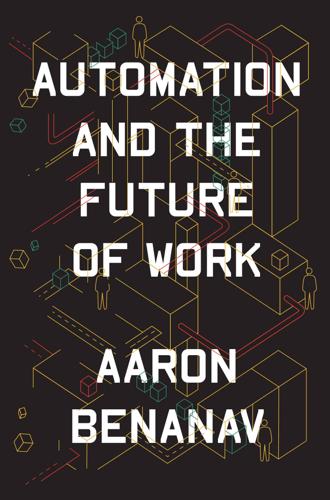
Automation and the Future of Work
by
Aaron Benanav
Published 3 Nov 2020
,” 103n17 output about, 18–9 growth rates in, 20 rate of growth of, 19 overcapacity, 37–9 Oxford Martin School, 6 Paine, Thomas, 73 The Paradise within the Reach of All Men, without Labour (Etzler), 7–8 Parasite (film), 62 Paris Commune, 85, 115n30 Philippines, service sector employment in, 56 The Philosophy of Manufactures (Ure), 7–8 Piketty, Thomas, 63 piquetero movement, 98 Plato Republic, 84 Player Piano (Vonnegut), 6 Polanyi, Karl, 85 post-scarcity, 13, 69, 72–3, 76, 82, 86–93 post-scarcity tradition about, 83–6, 132–3n7, 136n31 freedom and, 90–3 work sharing, 86–90 post-work. See post-scarcity tradition Postone, Moishe, 104n23 pre-industrialization deindustrialization, 108n23 price trends, manufacturing vs. nonmanufacturing, 110n35 production, conquest of, 79, 82, 86, 99 productivity about, 19 growth in United States, 123–4n40 growth rates in, 20 productivity paradox, 16–22 productivity-wages gap, 9–10 protests, 95–6 public debt-to-GDP ratios, 66–8 Raising the Floor (Stern), 4 rate of growth of output, 19 Reclus, Élie, 85 Reich, Robert, 4 Republic (Plato), 84 Rio Tinto, 117n45 Rise of the Robots (Ford), 3, 62 Robinson, Joan, 69, 127n15 robotization, 28, 107n16 robots tax, 3 Rodrik, Dani, 26 Ross, Kristin, 115n30 routine intellectual activities, 105n2 Rowthorn, Robert, 107–8n21 Russia, labor productivity growth in, 34 rust belts, 27–8 Salomons, Anna, 61 Scotland, universal basic income (UBI) and, 72 The Second Machine Age (Brynjolfsson and McAfee), 2–3, 45 SEIU (Service Employees International Union), 4 self-employment, 104n26 Service Employees International Union (SEIU), 4 service sector employment, 56–7, 59–60, 105n1 sewbots, 43 Singapore, robots in, 107n16 slaves, 83–4, 125n47 socialist calculation debate, 134n16 social policy, major shifts in, 12 South Africa deindustrialization in, 108n22 employment rates in, 53 labor productivity growth in, 34 service sector employment in, 56, 58, 97 South Korea economic bubbles in, 37 employment rates in, 53 export-processing zones in, 27 income growth in, 34–5 manufacturing employment shares in, 28 robotization in, 28, 107n16 as service-sector economy, 97 SpaceX, 3 Spain out-of-work income maintenance/support in, 119–20n6 universal basic income (UBI) and, 72 Srnicek, Nick on folk politics, 95 Inventing the Future, xii, 4–5, 76 on UBI, 76 stagnation, 57, 69–70 about, 29 growth and, 30–5 lack of alternatives and, 35–9 role of technology, 39–44 secular stagnation, x, 69–70 state-owned enterprises, employment in, 108–9n25 Stern, Andy Raising the Floor, 4 Streeck, Wolfgang, 96 strikes, 95–6 structural reform, 69 Strugatsky brothers, 132n4 Summers, Lawrence, 4, 69 sun belts, 27–8 Susskind, Daniel A World without Work: Technology, Automation, and How We Should Respond, 102n7 Sweden labor market institutions in, 121n14 Meidner Plan, 79 unemployment rates in, 47 women’s labor force in, 52 Taiwan export-processing zones in, 27 income growth in, 34–5 tariff protections, 117n41 technological unemployment, 2 technology legal context of development in, 120–1n12 role in, 39–44 The Technology Trap: Capital, Labor, and Power in the Age of Automation (Frey), 102n7 Tesla, 1 Thailand employment rates in, 53 service sector employment in, 58 They Live (Carpenter), x–xi, xi–xii Third World debt crisis, 25–6 Thomas, Zoe, 103n15 trade liberalization, 25–6 Travels in Icaria (Cabet), 84–5 Treganna, Fiona, 108n23 Tunisia, employment rates in, 53 Turkey, service sector employment in, 56 2008 crisis, xii Uber, 50 UBI (universal basic income).
…
In Inventing the Future, Nick Srnicek and Alex Williams argue that the “most recent wave of automation is poised” to transform the labor market “drastically, as it comes to encompass every aspect of the economy.”11 They claim that only a socialist government would actually be able to fulfill the promise of full automation by creating a post-work or post-scarcity society. In Four Futures, Peter Frase thoughtfully explores the alternative outcomes for such a post-scarcity society, depending on whether it were still to have private property or to suffer from resource scarcity, both of which could persist even if labor scarcity were overcome.12 Like the liberal proponents of the automation discourse, these left-wing writers stress that even if the coming of advanced robotics is inevitable, “there is no necessary progression into a post-work world.”13 Srnicek, Williams, and Frase are all proponents of UBI, but in a left-wing variant.
…
We need to slip out of this timeline and into another. A post-scarcity future—in which all individuals are guaranteed access to whatever they need to make a life, without exception—could become the basis on which humanity mounts a battle against climate change. It could also be the foundation on which we remake the world, creating the conditions in which, as James Boggs put it, “for the first time in human history, great masses of people will be free to explore and reflect, to question and to create, to learn and to teach, unhampered by the fear of where the next meal is coming from.”31 To find our way toward this post-scarcity future requires not only a break between work and income, as the automation theorists recognize, but also one between profit and income, as many do not.
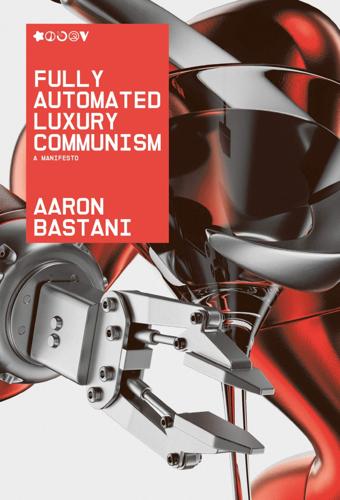
Fully Automated Luxury Communism
by
Aaron Bastani
Published 10 Jun 2019
Cardinal De Retz Contents Acknowledgements Introduction: Six Characters in Search of a Future I. Chaos under Heaven 1.The Great Disorder 2.The Three Disruptions 3.What Is Fully Automated Luxury Communism? II. New Travellers 4.Full Automation: Post-Scarcity in Labour 5.Limitless Power: Post-Scarcity in Energy 6.Mining the Sky: Post-Scarcity in Resources 7.Editing Destiny: Age and Post-Scarcity in Health 8.Food without Animals: Post-Scarcity in Sustenance III. Paradise Found 9.Popular Support: Luxury Populism 10.Fundamental Principles: The Break with Neoliberalism 11.Reforging the Capitalist State 12.FALC: A New Beginning Bibliography Index Acknowledgements Special thanks are due to Leo Hollis, my editor at Verso.
…
While the Second Disruption was marked by a relative freedom from scarcity in motive power – coal and oil rather than muscle and wind moving wheels, pulleys, ships, people and goods – the defining feature of the Third Disruption is ever-greater abundance in information. For some this signals the completion of the Industrial Revolution, marking an era in which machines are increasingly able to perform cognitive as well as physical tasks. This new situation of post-scarcity underpins what will be referred to as ‘extreme supply’, something not only limited to information, but – as a consequence of digitisation – labour too. Here, continuous improvements in processor power, in combination with a range of other technologies, means machines will be capable of replicating ever more of what was, until now, uniquely human work.
…
For Marx, communism was a condition of abundance, a society where labour and leisure dissolved into each other, and where our natures were developed in a manner consistent with play. This was a world where scarcity – or as Keynes refers to it, ‘the economic problem’ – would finally be vanquished. In 1930 Keynes speculated about something remarkably similar and, amazingly, even had the confidence to put a date on it – foreseeing the arrival of post-scarcity as soon as 2030. Other than Keynes’s stated disdain for Marx’s class-based politics in ‘preferring the mud to the fish’, what was it precisely that separated the two? The answer is the relationship between progress and politics. Unlike Marx, Keynes viewed capitalism as inevitably shifting to greater abundance, this resulting from its ability to become ever more productive over time while reducing the demand for labour.
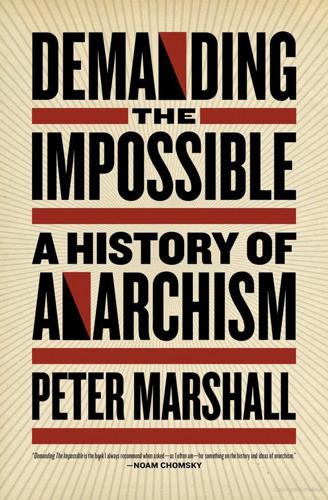
Demanding the Impossible: A History of Anarchism
by
Peter Marshall
Published 2 Jan 1992
Woodcock, ‘Paul Goodman: The Anarchist as Conservator’, The Anarchist Papers, op. cit., pp. 66–72 53 Goodman, People or Personnel, op. cit., p. 179 54 Ibid., p. 181 55 Ibid., pp. 175, 176 56 Ibid., p. 189 57 Goodman to Richard Boston, ‘Conversations about Anarchism’, A Decade of Anarchy, op. cit., p. 16 58 Goodman, ‘The Anarchist Principle’, ibid., p. 38 59 Goodman, A Message to the Military Industrial Complex (1965) (Housmans, 1969), p. 3 60 Goodman, Compulsory Miseducation (1964) (Harmondsworth: Penguin, 1971), p. 20 61 Goodman, The Community of Scholars (New York: Random House, 1962) 62 Goodman, Growing up Absurd (1960) (Sphere, 1970), p. 193 63 Goodman to Boston, ‘Conversations about Anarchism’, A Decade of Anarchy, op. cit., p. 17 Chapter Thirty-Nine 1 John Clark, The Anarchist Moment, op. cit., p. 188n; Theodore Roszak, quoted on the back cover of Murray Bookchin’s Remaking Society (Montréal & New York: Black Rose Books, 1989) 2 Bookchin, Toward an Ecological Society, op. cit., p. 280 3 Bookchin, Post-Scarcity Anarchism, op. cit., pp. 68–9 4 Bookchin, The Ecology of Freedom, op. cit., p. 4 5 Ibid., pp. 94, 127 6 Post-Scarcity Anarchism, op. cit., p. 21 7 Bookchin, ‘Thinking Ecologically: A Dialectical Approach’, Our Generation, 18, 2 (March 1987), 11–12 8 Post-Scarcity Anarchism, op. cit., p. 64; Ecology of Freedom, op cit., p. 237 9 Ibid., p. 11 10 Ibid., pp. 353–4 11 Toward an Ecological Society, op. cit., p. 109 12 Ecology of Freedom, op. cit., p. 355 13 See ‘Thinking Ecologically’, op. cit., pp. 6–7; Bookchin, ‘Freedom and Necessity in Nature’, Alternatives, 12, 4 (1986); The Modern Crisis, 2nd edn.
…
For a criticism of Bookchin’s view of human nature, see my article ‘Anarchism and Human Nature’, For Anarchism, op. cit., p. 148, n. 32 18 Post-Scarcity Anarchism, op. cit., pp. 39, 138 19 Ibid., p. 167n 20 Ecology of Freedom, op. cit., p. 318 21 See ‘Thinking Ecologically’, op. cit., pp. 3–4 22 Toward an Ecological Society, op. cit., p. 102. See also Ecology of Freedom, op. cit., pp. 130–3 23 Ibid., p. 251 24 Post-Scarcity Anarchism, op. cit., p. 40 25 Ibid., p. 70 26 Ecology of Freedom, op. cit., p. 352; cf. Toward an Ecological Society, op. cit., p. 60 27 Ecology of Freedom, op. cit., pp. 276, 278, 272. See also The Modern Crisis, op. cit., p. 25 28 Post-Scarcity Anarchism, op. cit., p. 78 29 See ‘Social Ecology’, op. cit., pp. 3–4; ‘The Crisis in the Ecology Movement’, Green Perspectives, 6 (May 1988), pp. 1–5 30 Post-Scarcity Anarchism, op. cit., p. 19 31 Toward an Ecological Society, op. cit., pp. 26, 93, 70 32 Ecology of Freedom, op. cit., pp. 276, 279 33 ‘Thinking Ecologically’, op. cit., p. 20; see also ‘The Crisis in the Ecology Movement’, op. cit., pp. 5–6 34 Ecology of Freedom, op. cit., p. 218 35 ‘Social Ecology’, op. cit., p. 10 36 See Post-Scarcity Anarchism, op. cit., p. 71n; Toward an Ecological Society, op. cit., p. 59 37 ‘Thinking Ecologically’, op. cit., pp. 35–6; Remaking Society, op. cit., p. 201 38 Ecology of Freedom, op. cit., p. 320 39 See ibid., p. 218 40 Ibid., p. 312 41 Ibid., p. 344 42 Ibid., p. 266 43 Post-Scarcity Anarchism, op. cit., p. 81 44 Toward an Ecological Society, op. cit., pp. 29, 193 45 Ibid., pp. 201, 202.
…
See also The Modern Crisis, op. cit., p. 25 28 Post-Scarcity Anarchism, op. cit., p. 78 29 See ‘Social Ecology’, op. cit., pp. 3–4; ‘The Crisis in the Ecology Movement’, Green Perspectives, 6 (May 1988), pp. 1–5 30 Post-Scarcity Anarchism, op. cit., p. 19 31 Toward an Ecological Society, op. cit., pp. 26, 93, 70 32 Ecology of Freedom, op. cit., pp. 276, 279 33 ‘Thinking Ecologically’, op. cit., p. 20; see also ‘The Crisis in the Ecology Movement’, op. cit., pp. 5–6 34 Ecology of Freedom, op. cit., p. 218 35 ‘Social Ecology’, op. cit., p. 10 36 See Post-Scarcity Anarchism, op. cit., p. 71n; Toward an Ecological Society, op. cit., p. 59 37 ‘Thinking Ecologically’, op. cit., pp. 35–6; Remaking Society, op. cit., p. 201 38 Ecology of Freedom, op. cit., p. 320 39 See ibid., p. 218 40 Ibid., p. 312 41 Ibid., p. 344 42 Ibid., p. 266 43 Post-Scarcity Anarchism, op. cit., p. 81 44 Toward an Ecological Society, op. cit., pp. 29, 193 45 Ibid., pp. 201, 202. See also Remaking Society, op. cit., p. 136 46 Post-Scarcity Anarchism, op. cit., p. 188. See also Toward an Ecological Society, op. cit., p. 208, and The Modern Crisis, op. cit., p. 168 47 Toward an Ecological Society, op. cit., p. 222 48 Ibid., pp. 126, 118 49 Post-Scarcity Anarchism, op. cit., p. 167 50 Ibid., pp. 19–20, 221 51 Ibid., p. 21 52 Toward an Ecological Society, op. cit., pp. 259, 245 53 Ibid., pp. 264, 274 54 Post-Scarcity Anarchism, op. cit., pp. 119, 115 55 Bill Devall and George Sessions, Deep Ecology (Salt Lake City: Peregrine Smith Books, 1985), p. 75, quoted in ‘Social Ecology’, op. cit., p. 12; The Modern Crisis, op. cit., p. 119 56 Ecology of Freedom, op. cit., p. 315 57 Ibid., p. 342 58 ‘Thinking Ecologically’, op. cit., p. 36; Remaking Society, op. cit., p. 203 59 Post-Scarcity Anarchism, op. cit., p. 116 60 Ibid., p. 119 61 Ibid., p. 130 62 See Jacques Ellul, The Technological Society (New York: Vintage, 1964).
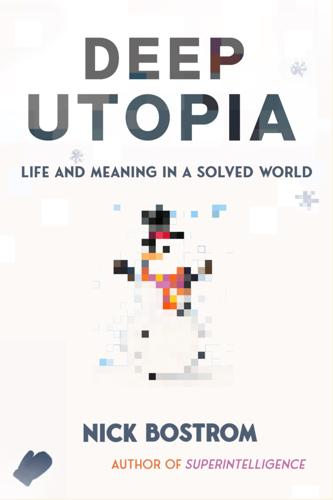
Deep Utopia: Life and Meaning in a Solved World
by
Nick Bostrom
Published 26 Mar 2024
* * * Although most of the utopian literature to date is of the governance & culture type, that is not our topic of this lecture series. We’ve instead been exploring some issues that arise in what I will term post-scarcity utopias. These are predicated on the assumption that a condition of economic abundance is somehow achieved. This idea is not new, of course: the Land of Cockaigne is essentially a post-scarcity utopia. And it is common for drafters of governance & culture utopias to assume that a society organized according to their prescriptions would also achieve some degree of economic abundance. We don’t need to be too strict with these definitions.
…
There are many things you can’t buy even with infinite money—for example because they haven’t been invented yet. But for our purposes it may be sufficient to say that a post-scarcity utopia is one in which it is easy to meet everybody’s basic material needs as traditionally conceived—food, housing, transportation, etc. We may toss in schools and hospitals and some other such services into the mix as well. And we can then observe that, in developed countries, we have already come a long way toward realizing this type of abundance—say, more than halfway toward a post-scarcity utopia.99 This estimate obviously omits our animal brothers and sisters, for the vast majority of whom the situation is still most dire and in urgent need of amelioration.100 * * * In these lectures, we have then gone beyond post-scarcity to talk also about what we can term post-work utopias.
…
Another typical flaw is a failure to recognize the moral patiency and needs of some oppressed group, such as animals. Comes in many flavors—feminist, Marxist, scientific/technological, ecological, religious. (And now, most recently, crypto?) 2. Post-scarcity utopia Featuring an abundance of material goods and services—food, electronics, transportation, housing, schools and hospitals, etc. Everybody can have plenty of everything (with the important exception of positional goods). Many governance & culture utopias are also, to varying degrees, post-scarcity. In reality, if we focus just on human beings, Earth is already, what—about two-thirds of the way there? compared to the baseline of a typical hunter-gatherer ancestor. 3.
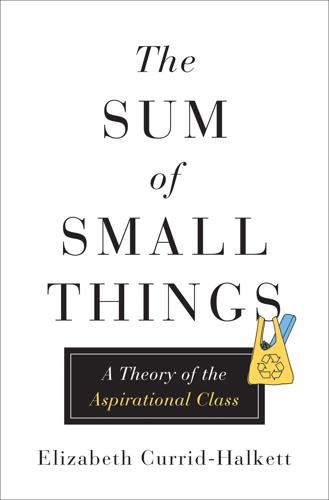
The Sum of Small Things: A Theory of the Aspirational Class
by
Elizabeth Currid-Halkett
Published 14 May 2017
Not in the late 1800s, as the Industrial Revolution gave us a middle class and the beginnings of mass consumerism, not in the early 1900s with Henry Ford’s Model T, not in the 1950s with dishwashers, fridges, and A/C for all, and not in the twenty-first century’s mass luxury business. In some respects, our constant quest for the meaning of life (which becomes more possible in a post-scarcity society where we have time to ponder and pursue more existential questions because we know we have food for dinner) has confused matters even more. For the aspirational class, post-scarcity society has allowed them to invest in practices that at first seem constructive: motherhood, exercise, acquisition of cultural capital. Ostensibly, these activities should make people happier, but they too have become status markers and signs of achievement, and in that process have created more pressure and less happiness, not so dissimilar from material signifiers of social position.
…
Starbucks may stamp “fair trade” on its pounds of coffee, but Intelligentsia buyers actually become friends with their coffee farmers and fly them to Los Angeles to meet the rest of the staff (and some of their customers). THE RISE OF CONSPICUOUS PRODUCTION This latter point is the key to understanding not only Intelligentsia but also the rise of a social and economic consciousness and awareness emerging across the Western world and its cultural, post-scarcity goods. The rise in specialty coffee is really the story of conspicuous production and it can be seen at grocery stores, clothing boutiques, farmers’ markets, and restaurants across the world. Conspicuous production goods are a key type of aspirational class consumption. For the aspirational class, we are what we eat, drink, and consume more generally, and this is why for some goods the opaque process of production has been replaced by transparency for every step.
…
Finally, after centuries of diametrical opposition, these two groups have banded together as the aspirational class, and they want and value the same things.3 The emergence of conspicuous production in the twenty-first century revolves around three key forces: the backlash against globalization, the rise of information and the premium on transparent information, and the luxury to care about these things as a result of a post-scarcity, postmodern society and its values. We see this transformation in where we buy groceries, the restaurants we frequent, what we wear, and even our toothpaste. Capitalism, historically dividing the capitalist from the proletariat, has been turned on its head. MORE THAN JUST ARUGULA: FOOD AS CONSPICUOUS PRODUCTION We may thank Starbucks for introducing the idea of the $5 cup of fair trade Kenyan coffee, but Whole Foods is the mainstream, mass-produced leitmotif of the conspicuous production movement.
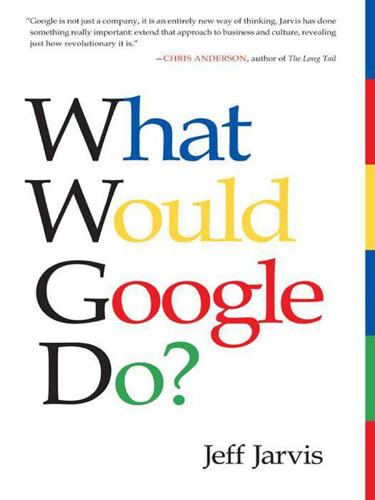
What Would Google Do?
by
Jeff Jarvis
Published 15 Feb 2009
He inspired me to blog that we could now create new competitors. “Small is the new big,” I wrote. At the same moment, Godin, similarly inspired, wrote the same line on his blog (and he beat me to using it as the title of a book). “Get small,” Godin blogged. “Think big.” The post-scarcity economy We are entering a post-scarcity economy in which Google is teaching us to manage abundance, challenging the bedrock rule of economics, first written in 1767: the law of supply and demand. Many industries built their value on scarcity. Airlines, Broadway theaters, and universities had only so many seats, which meant they could charge what they wanted for them.
…
Google Rules New Relationship • Give the people control and we will use it • Dell hell • Your worst customer is your best friend • Your best customer is your partner New Architecture • The link changes everything • Do what you do best and link to the rest • Join a network • Be a platform • Think distributed New Publicness • If you’re not searchable, you won’t be found • Everybody needs Googlejuice • Life is public, so is business • Your customers are your ad agency New Society • Elegant organization New Economy • Small is the new big • The post-scarcity economy • Join the open-source, gift economy • The mass market is dead—long live the mass of niches • Google commodifies everything • Welcome to the Google economy New Business Reality • Atoms are a drag • Middlemen are doomed • Free is a business model • Decide what business you’re in New Attitude • There is an inverse relationship between control and trust • Trust the people • Listen New Ethic • Make mistakes well • Life is a beta • Be honest • Be transparent • Collaborate • Don’t be evil New Speed • Answers are instantaneous • Life is live • Mobs form in a flash New Imperatives • Beware the cash cow in the coal mine • Encourage, enable, and protect innovation • Simplify, simplify • Get out of the way If Google Ruled the World Media • The Google Times: Newspapers, post-paper • Googlewood: Entertainment, opened up • GoogleCollins: Killing the book to save it Advertising • And now, a word from Google’s sponsors Retail • Google Eats: A business built on openness • Google Shops: A company built on people Utilities • Google Power & Light: What Google would do • GT&T: What Google should do Manufacturing • The Googlemobile: From secrecy to sharing • Google Cola: We’re more than consumers Service • Google Air: A social marketplace of customers • Google Real Estate: Information is power Money • Google Capital: Money makes networks • The First Bank of Google: Markets minus middlemen Public Welfare • St.
…
We also have new ethics and attitudes that spring from this new organization and change society in ways we cannot yet see, with openness, generosity, collaboration, efficiency. We are using the internet’s connective tissue to leap over borders—whether they surround countries or companies or demographics. We are reorganizing society. This is Google’s—and Facebook’s and craigslist’s—new world order. New Economy Small is the new big The post-scarcity economy Join the open-source, gift economy The mass market is dead—long live the mass of niches Google commodifies everything Welcome to the Google economy Small is the new big Mind you, big is still big. Wal-Mart is the largest company on earth. Bigbox stores such as Home Depot continue to drive mom-and-pop hardware shops out of business.
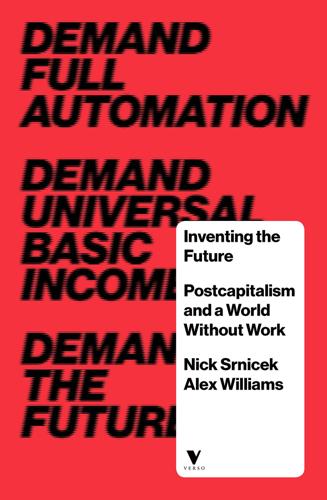
Inventing the Future: Postcapitalism and a World Without Work
by
Nick Srnicek
and
Alex Williams
Published 1 Oct 2015
The left was largely without a meaningful and desirable economic programme, having focused primarily on the critique of capitalism rather than the elaboration of alternatives. This is a crisis of utopian imagination, but also of cognitive limits. A series of emerging contemporary phenomena must be thought through carefully: for instance, the causes and effects of secular stagnation; the transformations invoked by the shift to an informational, post-scarcity economy; the changes wrought by the introduction of full automation and a universal basic income; the possible approaches to collectivising automated manufacturing and services; the progressive potentials of alternative approaches to quantitative easing; the most effective ways to decarbonise the means of production; the implications of dark pools for financial instability – and so on.
…
It would mean building upon the post-nation-state territory of ‘the stack’ – that global infrastructure that enables our digital world today.26 A new type of production is already visible at the leading edges of contemporary technology. Additive manufacturing and the automation of work portend the possibility of production based on flexibility, decentralisation and post-scarcity for some goods. The rapid automation of logistics presents the utopian possibility of a globally interconnected system in which parts and goods can be shipped rapidly and efficiently without human labour. Cryptocurrencies and their block-chain technology could bring forth a new money of the commons, divorced from capitalist forms.27 The democratic guidance of the economy is also accelerated by emerging technologies.
…
Anti-Authoritarian Politics from Practice to Theory (London: Pluto, 2007), p. 20. 8.While we remain unconvinced of the large-scale prospects for direct democracy in its face-to-face and/or consensus-driven forms, this certainly does not preclude thinking about how participative democracy might be conceived along more complex, technologically mediated lines. 9.Murray Bookchin, Post-Scarcity Anarchism (Edinburgh: AK Press, 2004), p. xxviii. 10.Ibid., p. 58. 11.Manuel Castells, Networks of Outrage and Hope: Social Movements in the Internet Age (Cambridge, UK/Malden, MA: Polity, 2012), p. 11. 12.The origin of the form of consensus decision-making used in contemporary left activism is generally thought to have been with the Quaker religious movement around 300 years ago.
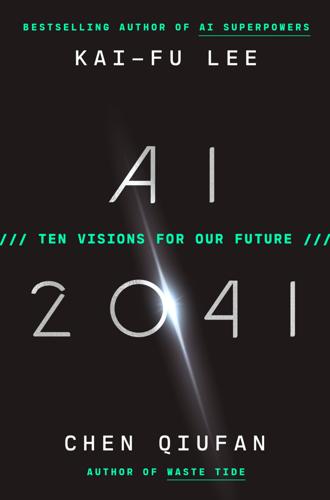
AI 2041: Ten Visions for Our Future
by
Kai-Fu Lee
and
Qiufan Chen
Published 13 Sep 2021
PLENITUDE: A TECHNOLOGY-MEDIATED INEVITABILITY “Post-scarcity” describes a world where nothing is scarce, and everything is free. In “Dreaming of Plenitude,” we encounter a future world in which countries are moving toward post-scarcity, although at different paces. In the last story, Australia, a highly developed country, is wealthy enough to give everyone basic necessities and comfortable living (through the BLC card). Poorer countries, we can infer from the story, would reach a state of plenitude sometime later. Because the timetable will vary for different countries, I prefer the term “plenitude” rather than “post-scarcity.” Also, strict post-scarcity will never be achieved.
…
For the first time in human history, developed countries could eradicate poverty and hunger. If this happens, would money be phased out? If so, what would take money’s place to motivate people to live purpose-filled lives? Would any economic theory apply anymore? This story, set in Australia, explores a futuristic society that has introduced two currencies for a post-scarcity world: a card that provides for citizens’ basic needs, and a new virtual currency for building reputation and respect through service to the community. In my commentary I will discuss how plenitude nullifies economic theories, and explore what might be next after plenitude: singularity. STANDING IN THE foyer, Keira looked her new surroundings up and down.
…
As the cost of energy, materials, and production fall at historic speed, we can look forward to plenitude. “Plenitude” is the word I have chosen to denote a new phase of human life, in which all people are entitled to a comfortable life, as goods prices approach free, and work becomes optional. Others have called it “abundance” or “post-scarcity.” But in “Dreaming of Plenitude,” a society that at first seems like it might possess all the ingredients of a utopian paradise, in which everyone’s basic needs are met (thus leaving people free to pursue higher purposes with their lives), is revealed to bring about as many problems as it solves.
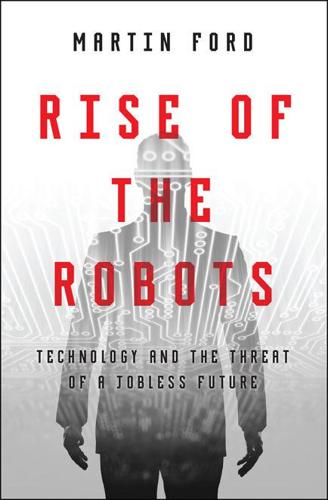
Rise of the Robots: Technology and the Threat of a Jobless Future
by
Martin Ford
Published 4 May 2015
Just as Captain Picard’s often-repeated command of “Tea, Earl Grey, Hot” instantly conjures up the proper drink, a molecular fabricator might someday create nearly anything we desire. Among some techno-optimists, the prospect of molecular manufacturing is associated strongly with the concept of an eventual “post-scarcity” economy in which nearly all material goods are abundant and virtually free. Services are likewise assumed to be provided by advanced AI. In this technological utopia, resource and environmental constraints would be eliminated by universal, molecular recycling and abundant clean energy. The market economy might cease to exist, and (as on Star Trek) there would be no need for money.
…
The Beijing Genomics Institute has collected thousands of DNA samples from people known to have very high IQs and is working on isolating the genes associated with intelligence. The Chinese might be able to use this information to screen embryos for high intelligence and drive their population to become smarter over time. * You can watch Michio Kaku discuss the post-scarcity economy in the video “Can Nanotechnology Create Utopia?,” available on YouTube. Chapter 10 TOWARD A NEW ECONOMIC PARADIGM In an interview with CBS News, the president of the United States was asked if the nation’s dire unemployment problem was likely to improve soon. “There’s no magic solution,” he replied.
…
Eric, 241–242, 243, 244–245, 246, 247 driverless cars, See autonomous cars drone-based delivery, 190n drug prices, 170–171 Drum, Kevin, 188 Dunning, David, 18–19 dystopian future, automation and predictions of, 31–32, 219–220 Earned Income Tax Credit (EITC), 271, 277 eBay, 16, 76 economic argument for guaranteed income, 264–267 economic growth, 65, 212–215 economic mobility, decrease in, 46–47 economic policy, 57–58, 217–218 Economic Policy Institute, 127, 158 economic recoveries, jobs created during, 49–50 economics, mathematical models and, x, 205–206 economic trends bear market for labor/bull market for corporations, 38–41 declining incomes and underemployment for college graduates, 48–49 effect of information technology on, 58–61 income inequality, 46–48 job creation, jobless recoveries, and long-term unemployment, 43–46 labor force participation, 41–43 polarization and part-time jobs, 49–51 stagnant wages, 34–38 economists on impact of automation, 60 on income inequality, 202–206 economy complexity of, 211–212 defined, 266n effect of climate change on, 282–283 post-scarcity, 247 e-Discovery software, 124 Edison, Thomas, 234 education basic income guarantee and, 263 collaboration with machines and, 121–128 diminishing returns to, 250–253 effect on income, 48–49 nature of unemployment problem and, 249–250 See also higher education educational robots, 7 edX, 132, 133, 137 Egypt, 46 EITC.

Start-Up Nation: The Story of Israel's Economic Miracle
by
Dan Senor
and
Saul Singer
Published 3 Nov 2009
Quoted in Gallup, “Gallup Reveals the Formula for Innovation,” Gallup Management Journal, May 10, 2007, http://gmj.gallup.com/content/27514/Gallup-Reveals-the-Formula-for-%20Innovation.aspx. 5. Dov Frohman and Robert Howard, Leadership the Hard Way: Why Leadership Can’t be Taught—and How You Can Learn It Anyway (San Francisco: Jossey-Bass, 2008), p. 7. 6. Quoted in Ronald Bailey, “Post-Scarcity Prophet: Economist Paul Romer on Growth, Technological Change, and an Unlimited Human Future,” Reason Online, December 2001, http://www.reason.com/news/show/28243.html. 7. Ronald Bailey, “Post-Scarcity Prophet”; and Paul Romer, “Economic Growth,” both in The Concise Encyclopedia of Economics, edited by David R. Henderson (Indianapolis: Liberty Fund, 2007), http://www.stanford.edu/~promer/EconomicGrowth.pdf.
…
“Israel’s Future: Brainpower, High Tech, and Peace,” Harvard Business Review, November 1991. Avnimelech, Gil, and Morris Teubal. “Venture Capital Policy in Israel: A Comparative Analysis and Lessons for Other Countries.” Research paper. Hebrew University School of Business Administration and School of Economics, October 2002. Bailey, Ronald. “Post-Scarcity Prophet: Economist Paul Romer on Growth, Technological Change, and an Unlimited Human Future.” Reason Online, December 2001. http://www.reason.com/news/show/28243.html. Ball, Julie. “Israel’s Booming Hi-Tech Industry.” BBC News, October 6, 2008. http://news.bbc.co.uk/2/hi/business/7654780.stm.

Radical Technologies: The Design of Everyday Life
by
Adam Greenfield
Published 29 May 2017
We’ve lived with scarcity for so long, have so long enshrined it at the very heart of our assumptions about value, choice and necessity, that it’s difficult to imagine the contours of a life unmarked by it. It doesn’t take any particular clairvoyance, though, to see that the psychology of everyday life, the structure of the economy, and the form of our cities all stand to be utterly transformed in a post-scarcity world. The ability for any individual to make more or less whatever they want, whenever they wanted it, would sunder the long-established circuit between advertising’s provocation of desire and the market’s sovereign capacity to fulfill it. While this would by no means necessarily mean an end to consumerism and its familiar arsenal of tools aimed at the manipulation of desire, it would tend to undercut their sustaining logic.
…
At present, the great majority of digital fabricators on Earth remain sequestered in limited-access workshops like these, or still harder to get at facilities belonging to universities and private research institutions. Despite their operators’ best intentions, many of these spaces still intimidate the people who would most benefit from using them, their very language, branding and framing confronting more than a few would-be users with an insuperable psychic challenge ramp. Any vision of post-scarcity utopia that is predicated on distributed, democratized production would require such sites to be not merely free and formally open but actively welcoming, and that has yet to be achieved just about anywhere. What about the ability to work with a usefully wide variety of materials? Though 3D printing techniques have been successfully extended to concrete, food-grade edible materials and even living tissue,11 at the moment a boxfresh Replicator 2 can only print with PLA and ABS plastic.
…
As one reads, it’s impossible to avoid thinking of our own world, of the 300,000 discrete objects said to be contained in the average North American home. This is our own embarrassment of riches: even objectively poor people in the global North live with an absolute standard of daily material comfort that would have been aspirational for most of history’s wealthy. In any raw material sense, we already live in a post-scarcity world, even before any particularly elaborate digital fabrication capacity is brought on line. And yet we still seem to suffer from a pervasive sense of want and lack. And this points out a profound confusion that’s seemingly shared by everyone from Bowyer to Srnicek, Williams and the stalwarts of Fully Automated Luxury Communism.
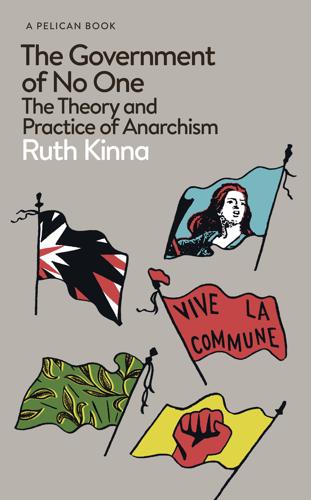
The Government of No One: The Theory and Practice of Anarchism
by
Ruth Kinna
Published 31 Jul 2019
In the latter part of the decade he developed the concept of post-scarcity, finding a foothold in the countercultural movements that blossomed in the 60s. In 1971 he co-founded the Institute for Social Ecology in Plainfield, Vermont, and started teaching at the liberal arts Ramapo College of New Jersey, becoming a full professor in 1977. In the 1960s and 70s Bookchin lectured across the US and Canada and was active in number of anti-nuclear, civil rights and anti-Vietnam War campaigns. He wrote nearly thirty books, including the collection Post-Scarcity Anarchism (1971), The Ecology of Freedom (1982), Urbanization without Cities (1992) and Social Anarchism or Lifestyle Anarchism: An Unbridgeable Chasm (1995).6 TOM BROWN (1900–1974) Brown was an anarchist syndicalist born in Newcastle-on-Tyne in the north-east of England.
…
Herman and Noam Chomsky, Manufacturing Consent (New York: Pantheon Books, 1988). 71 Rebecca Solnit, ‘Worlds Collide in a Luxury Suite: Some Thoughts on the IMF, Global Injustice, and a Stranger on a Train’, Huffington Post, 22 May 2011, updated 22 July 2011, online at https://www.huffingtonpost.com/rebecca-solnit/worlds-collide-in-a-luxur_b_865307.html [last access 27 November 2011]. 72 Rebecca Solnit, ‘Democracy Should Be Exercised Regularly, On Foot’, Guardian, 6 July 2006, online at https://www.theguardian.com/commentisfree/2006/jul/06/comment.politics [last access 27 November 2011]. 73 Murray Bookchin, ‘Listen, Marxist!’, in Post-Scarcity Anarchism (Edinburgh and Oakland: AK Press, 2004 [1970]), p. 135 [108–43]. 74 Murray Bookchin, ‘What is Social Ecology?’, in Social Ecology and Communalism (Edinburgh and Oakland: AK Press, 2007), p. 45 [19–52]. 75 Murray Bookchin, The Next Revolution: Popular Assemblies and the Promise of Direct Democracy (London: Verso, 2015), p. 71. 76 Bookchin, The Next Revolution, p. 70. 77 Murray Bookchin, Preface to Urbanization Without Cities: The Rise and Decline of Citizenship (Montreal: Black Rose, 1992), p. x. 78 Guy-Ernest Debord, The Society of the Spectacle, ch. 7: ‘The Organization of Territory’, para. 174, online at http://library.nothingness.org/articles/SI/en/display/24 [last access 4 June 2018]. 79 Bookchin, Urbanization Without Cities, p. 3. 80 Bookchin, Preface to Urbanization Without Cities, p. x. 81 Bookchin, The Next Revolution, p. 66. 82 Bookchin, ‘Radical Politics’, in Social Ecology and Communalism, p. 66. 83 Bookchin, The Limits of the City (New York: Harper Torchbooks, 1974), p. 137. 84 Bookchin, ‘Radical Politics’, p. 61. 85 Bookchin, The Next Revolution, p. 87. 86 David Graeber, ‘Enacting the Impossible (On Consensus Decision Making)’, Occupy Wall Street, 29 October 2011, online at http://occupywallst.org/article/enacting-the-impossible/ [last access 2 December 2017]. 87 Murray Bookchin, ‘What is Communalism?
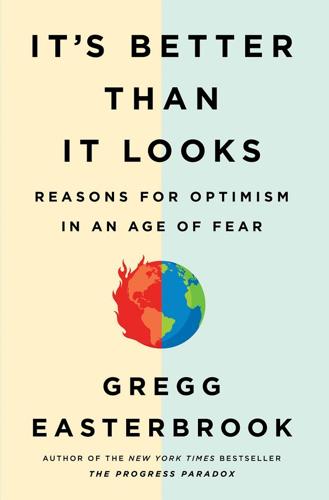
It's Better Than It Looks: Reasons for Optimism in an Age of Fear
by
Gregg Easterbrook
Published 20 Feb 2018
European Union nations spend less per capita on health care than the United States, yet achieve as good or better outcomes, in part because their systems are less stressful, and stress does medical damage. Whether single-payer could happen under US political conditions is a book unto itself. But however desirable, single-payer emphatically would not be “free.” There was never a Good Old Days when health care services were both high-quality and cost nothing, and there never will be, unless a post-scarcity economy someday can be achieved. Today’s Medicare and Medicaid, financed mostly on the “somebody else pays” premise, may be what keep their recipients alive to take Bertrand Russell’s advice and complain. In 2017, the Wall Street Journal quoted seventy-nine-year-old Carole Siesser of Delray Beach, Florida, who needs a specialized drug, saying, “They really take advantage of seniors” because she must cover $5,600 of the drug’s annual $26,000 price.
…
Suppose he’d earned $1 million, with the yield evenly distributed to Honeywell employees. Each would have received $268. There just isn’t enough in CEO windfalls to alter the basic equation of equality. Until such time as there may be a fundamental breakthrough in the structure of economics, such as a post-scarcity economy, market forces are in everyone’s interest, which may mean tolerating a few individuals who end up with far more than they’ve done anything to deserve. So if executive pay restrictions won’t solve inequality, what about taxing the rich? THE US UPPER CLASS, THE top quintile, received 53 percent of the nation’s income and paid 69 percent of the nation’s federal taxes; the poor and working class, the bottom quintile, received 5 percent of the nation’s income and paid just shy of nothing in federal income taxes, according to Congressional Budget Office data on the most recent year for which statistics are available.
…
An entire world living at the Western standard would bring stress and materialism to the whole world, and not even the rosiest optimist knows where all the cars will park. But society can succeed at a universal Western standard or can fail, and success is a lot more appealing. If the entire world had the living standards, longevity, and education levels of the West, the conditions required for a serene post-scarcity economy might come about. * * * THE REASON SO MANY PROBLEMS seem unsolvable is that we have not yet attempted to solve them. The past holds innumerable difficulties that seemed as if they could never end. Then they did. Being sanguine about the human prospect does not justify laissez-faire—“I don’t need to worry because things will work out.”
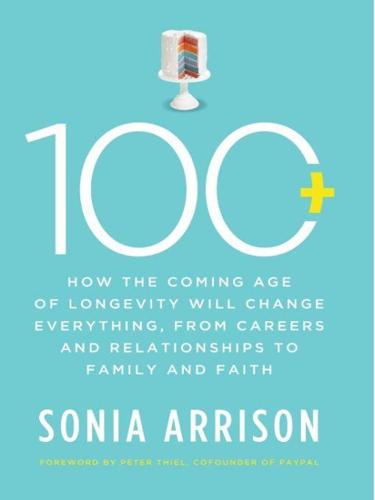
100 Plus: How the Coming Age of Longevity Will Change Everything, From Careers and Relationships to Family And
by
Sonia Arrison
Published 22 Aug 2011
Page, The Difference: How the Power of Diversity Creates Better Groups, Firms, Schools, and Societies (Princeton, NJ: Princeton University Press, 2007). 52 Cox and Alm, Myths of Rich and Poor, 49. 53 Romer’s ideas are widely discussed, but perhaps the most interesting current summary can be found in Sebastian Mallaby, “The Politically Incorrect Guide to Ending Poverty,” The Atlantic, July–August 2010, www.theatlantic.com/magazine/print/2010/07/the-politically-incorrect-guide-to-ending-poverty/8134/. 54 Matt Ridley, The Rational Optimist: How Prosperity Evolves (New York: HarperCollins, 2010), 352. 55 Ibid., 14–15. 56 Ronald Bailey, “Post-Scarcity Prophet,” Reason, December 2001, http://reason.com/archives/2001/12/01/post-scarcity-prophet/1. 57 Max More, “The Myth of Stagnation,” in Death and Anti-death, ed. Charles Tandy, vol. 7 (Palo Alto, CA: Ria University Press, 2010), www.maxmore.com/mythofstagnation.htm. CHAPTER 5 1 Rahul Bedi and Kate Devlin, “Indian Woman Has First Child at Age of 70,” The Telegraph, December 8, 2008, www.telegraph.co.uk/news/worldnews/asia/india/3684395/Indian-woman-has-first-child-at-age-of-70.html. 2 Lisa Belkin, “70-Year-Old Woman Gives Birth,” New York Times, December 9, 2008, http://parenting.blogs.nytimes.com/2008/12/09/pregnant-at-70/. 3 William Saletan, “Motherhood at 70: Meet the World’s Newest Oldest Mom,” Slate, December 9, 2008, www.slate.com/id/2206334/. 4 Andy Beckett, “Time, Gentlemen,” The Age, May 8, 2006, www.theage.com.au/news/in-depth/time-gentlemen/2006/05/07/1146940408372.html. 5 Lawrence M.
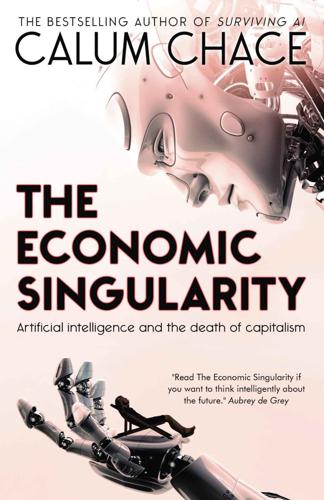
The Economic Singularity: Artificial Intelligence and the Death of Capitalism
by
Calum Chace
Published 17 Jul 2016
The humans are kept company and aided by vastly superior and extraordinarily indulgent machine intelligences, and they lead lives of perpetual indulgence. As Banks put it in a 2012 interview, “It is my vision of what you do when you are in a post-scarcity society, you can completely indulge yourself. The Culture has no unemployment problem, no one has to work, so all work is a form of play.”[cclxxxviii] Abundance The Star Trek economy is the post-scarcity economy, the economy of radical abundance. In their 2012 book “Abundance: the future is better than you think”, Peter Diamandis and Stephen Kotler argue that this world is within reach in the not-too-distant future, thanks largely to the exponential improvement in technology.
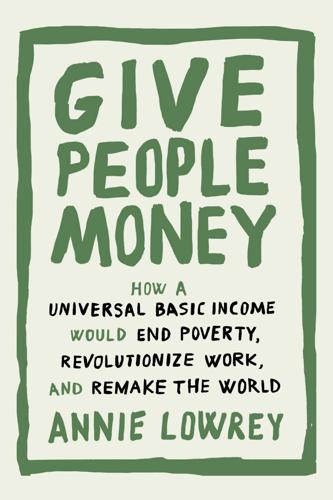
Give People Money
by
Annie Lowrey
Published 10 Jul 2018
Well, AI and replicator machines have functionally eliminated resource constraints and the necessity of cost for the vast majority of goods and services in this universe. Need something? Print it on your replicator. For those things that do remain scarce, and to help smooth transactions within the socialist society, there are Federation Credits. These at one point allow the government to bargain for access to a wormhole, for instance. The economy is post-scarcity, post-profit, post-deprivation, post-inequality, post-exploitation, and post-money. Neither Keynes nor The Jetsons dwells on the economic particulars, alas. But the famed British macroeconomist was imagining a future iteration of our capitalist society. In that world, facing mass technological unemployment, a permanently lowered demand for labor, and great material abundance, individuals might work fifteen hours a week, he wrote.
…
“Labor cannot be distinguished from leisure”: Manu Saadia, Trekonomics: The Economics of “Star Trek” (New York: Inkshares, 2016). “Economic Possibilities for Our Grandchildren”: Keynes, “Economic Possibilities for Our Grandchildren (1930).” help smooth transactions: Matthew Yglesias, “The Star Trek Economy: (Mostly) Post-Scarcity, (Mostly) Socialism,” Slate, Nov. 18, 2013. dystopian visions: Yglesias, “The Economics of The Hunger Games,” Slate, Nov. 22, 2013. “The future is already here”: Pagan Kennedy, “William Gibson’s Future Is Now,” New York Times, Jan. 13, 2012. ABOUT THE AUTHOR Annie Lowrey is a contributing editor for The Atlantic.
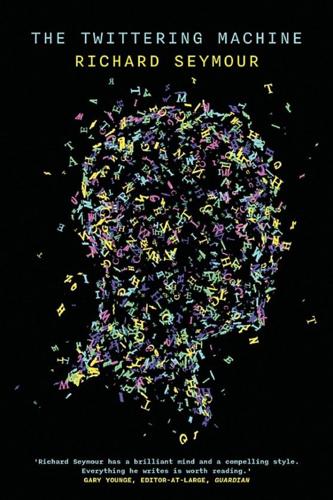
The Twittering Machine
by
Richard Seymour
Published 20 Aug 2019
It is an escape route, a way to connect with someone who isn’t there; or is only there as a written trace, a ghost in the machine. The fantasy of plenitude, the superabundance of online shit, may allow us to experience our social poverty as affluence, as in the fantasy that the internet and the social industry are ‘post-scarcity’.35 Like many fantasies, this has some basis in reality when not just ‘free stuff’, but even affection and romantic excitement can be accumulated in an objectified form as ‘likes’ and ‘matches’. But as with so many fairy tales, it is the fantasy, the wish fulfilment, of the poor. Social media are not the cause of this social impoverishment, any more than drugs are.
…
Jean Twenge, iGen - Why Today’s Super-Connected Kids Are Growing Up Less Rebellious, More Tolerant, Less Happy – And Completely Unprepared For Adulthood, Atria Books: New York, 2017. 34. It is no accident . . . Darian Leader, Hands: What We Do With Them – And Why, Penguin Random House: London, 2016, Kindle Loc. 686. 35. . . . ‘post-scarcity’ . . . for one version of this fashionable theory, see Jeremy Rifkin, ‘The Rise of Anti-Capitalism’, New York Times, 15 March 2014. 36. The literary critic Raymond Williams . . . Raymond Williams, Television: Technology and Cultural Form, Routledge: London and New York, 2003, pp. 19–21. 37. The psychoanalyst Colette Soler . . .

2312
by
Kim Stanley Robinson
Published 22 May 2012
And actually do it, too, in the Yggdrasil. When so much space is available… so much everything, really. I mean, we’re in what people call post-scarcity. So I don’t get it. You talk about motive, but in a physiological sense, there isn’t a motive for stuff like this. I suppose that means that evil really does exist. I thought it was just an old religious term, but I guess I was wrong. It’s making me sick.” The inspector’s attractive little face creased in a slight smile. “Sometimes I think it’s only in post-scarcity that evil exists. Before that, it could always be put down to want or fear. It was possible to believe, as apparently you did, that when fear and want went away, bad deeds would too.
…
When you combine political inadequacy with the physical problems of being in space, it may be too much. We may be trying to make an impossible adaptation out here.” “So what do we do?” she said again. Genette shrugged again. “Hold the line, I guess. Maybe we need to understand out here that post-scarcity is both heaven and hell at once. They are superposed, like options in a qubit before its wave function collapses. Good and evil, art and war. All there in potentiality.” “But what do we do?” Genette smiled a little at that, shifted and sat cross-legged on the table before her, looking like a garden Buddha or Tara, slim and stylized.
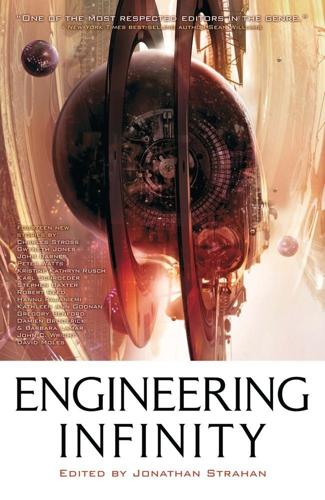
Engineering Infinity
by
Jonathan Strahan
Published 28 Dec 2010
In the 1950s it was where the best tales of space exploration were forged; in the 1960s it was the heart of near-Earth science fiction; in the 1980s it was the radical centre for the British drive to the new space opera; and in the 1990s, with the arrival of both quantum mechanics in science fiction and the singularity, it was the basis for Kim Stanley Robinson's meticulous and demanding Mars trilogy, Greg Egan's explorations of human consciousness, and Charles Stross's post-scarcity space operas. This, however, is the 21st century and I think things are becoming more complicated and complex. Science fiction no longer subscribes readily to a single view of its own history. There's far more to our past than the Gernsback continuum, or indeed more recently the Gibson continuum (the past and future history of cyberpunk), and science itself seems to be an ever more wriggly and complex beast as we come to better understand the universe in which we find ourselves.
…
There's far more to our past than the Gernsback continuum, or indeed more recently the Gibson continuum (the past and future history of cyberpunk), and science itself seems to be an ever more wriggly and complex beast as we come to better understand the universe in which we find ourselves. Frankly quantum mechanics often sounds indistinguishable from magic. We're also well into the Fourth Generation of science fiction: the genre has been born, passed through adolescence, into adulthood, and is moving into a post-scarcity period of incredible richness and diversity. That impacts on everything in our field, from the diversity of the people who write science fiction to whom and about what they choose to write. We've also long since accepted that science fiction writers aren't back-room nostrodamusses reading tealeaves and predicting the future.

The Trouble With Brunch: Work, Class and the Pursuit of Leisure
by
Shawn Micallef
Published 10 Jun 2014
Some of the shared values Florida goes on to list include individuality, meritocracy, diversity and openness. On the face of it, these seem like exactly the kinds of values a just and fair class identity should be based on and are in line with the principles expressed by most existing progressive organizations and people. However, in a section of his book called ‘Post-Scarcity Effect,’ Florida looked at the work of Ronald Inglehard, a political science professor at University of Michigan who conducted his own world-values survey that found there was ‘a worldwide shift from economic growth issues to lifestyle values, which [Inglehard] sometimes refers to as a shift from “survival” to “self-expression” values.’

Human Frontiers: The Future of Big Ideas in an Age of Small Thinking
by
Michael Bhaskar
Published 2 Nov 2021
These freewheeling new statelets are the locus of much of this innovation, themselves representing the biggest experiment in statehood since the birth of the nation state. As vast photovoltaic sails pitched around the Earth suck up more and more of the Sun's rays, we approach Type I status. After this, things get murkier. Type II Ideas (medium-term ish) A stellar civilisation finally sees the creation of a post-scarcity society, a new economic, social and political domain, with a wholesale rewriting of the legal and social-scientific framework around it. Old notions of the economy are redundant. Political ideas like left wing and right wing are ancient and irrelevant relics by now, and instead a series of new oppositions has arisen.
…
Rogers 332 Homo omnis (Homni) 300 Honjo, Tasuko 58 Hooke, Robert 333 Horgan, John 118, 168 Hossenfelder, Sabine 121–2 Howard Hughes Medical Institute 322 Howes, Anton 24, 172 hubris 122 Huebner, Jonathan 77–9, 81, 86, 91, 94, 97 Hugo, Victor 27 human frontier 7–19, 27, 40–1, 147–8, 156, 158, 249, 277–8, 336, 342–3 and artificial intelligence 250 diminishing returns of the 98 getting stuck at the 45 moral 132, 138 putting to rest 42 and science 123, 124 slowing down at the 14, 86–7, 131 and women 269 hydrogen 145 Hypatia of Alexandria 304 IBM 33, 184, 240, 265, 296, 312 Idea Paradox 178–9, 187, 191, 217, 226, 250, 254, 283–4, 301, 312, 342 ideas ‘0-I’ ideas 31 and economic growth 88, 89–92 nature of 17–18 protection 89 and research and development 90–1 slowdown 90–1 spread of 89–90 world-changing 5–6 see also big ideas illiteracy 277 imagination 16, 236 immunotherapy 57–61 income global 278 median 95 incrementalism 34, 71, 279 India 44, 71, 213, 264–8, 275, 277, 279–80, 284, 294–5, 308, 313, 326–8 individualism 282 Industrial Enlightenment 27 Industrial Revolution 242–3, 252–3, 295, 301 First (IIR) 79–81, 253, 259, 289, 306, 325 Fourth (4IR) 82, 86, 253–4 Second (2IR) 79–80, 81, 83, 84, 86, 104, 253, 289 Third (3IR) 81–2, 83–4, 86, 92, 253–4 inequality 251 infant mortality rate 10, 54 influence 28, 32–3 Initial Public Offerings (IPOs) 95 Inklings 124, 295 innovation 16, 18, 25, 31, 96, 98, 161, 183–5, 214, 274, 286, 288, 296–7, 298, 339 age of 5 breakthrough 32–3 curve of 77–9 disruptive 34 epochal 31 and human capital 277 and industrial revolution 84 and military technology 316–17 normal rates of 177–8 normalisation of 172 parasitic 194 radical 95 risky nature 335 scale 83 slowdown 83, 85 society's attitude to 17, 18 Innovation Illusion 13 institutional revolution 286–301, 309–10, 328–32, 337–8 Intel 92, 253, 272 intellectual, the, death of 110 intellectual property (IP) 89, 195–6, 251, 331 intelligence 247, 299 collective 339 ‘intelligence explosion’ 238 limits to 166–79 interconnectedness 274, 299–300 interest rates 95 International Exhibition of Modern Art, The 103 International Mathematics Olympiad 276 International Space Station 70 Internet 85, 128–9, 183, 185, 196, 246–7, 253–4, 265–6, 272, 274, 297, 300, 315, 329 invention 11, 15, 16, 156–8, 274, 286, 288, 339 and Bell Labs 180–4 and cities 270–2 industrial 24–5 macro- 31, 81 micro- 31 and military technology 316–17 and patents 97 IP see intellectual property IPOs see Initial Public Offerings iron oxide 89 Islam 133, 340 Islamic caliphate 259, 260 Islamic State 305 ITER 146 Jackson, Andrew 67 Jainism 108 Japan 264, 266, 268, 279, 296, 305 Jefferson, Thomas 211 Jenner, Edward 47 Jesus 24, 216, 303 jet engines 69–70 jetpacks 71, 72 Jiankui, He 255–7, 280, 285 job automation 228 job destruction 96 Jobs, Steve 159, 186 Jones, Benjamin F. 156, 158–9, 160–1 Jones, Charles I. 90–1, 93, 94, 152 joy 170–1 Joyce, James 103, 166 Jung, Carl 104 Justinian 304 Kahn, Bob 253 Kahn, Herman 129 The Year 2000 9, 12, 13 Kaku, Michio 337 Kardashev, Nikolai 337 Kardashev Scale 337–43 Kauffmann, Stuart 203 Kay, John 24–5 Kelly, Kevin 300 Kelly, Mervin 182, 206 Kepler, Johannes 36, 229 Khmer Rouge 305 Kim Il-Sung 114 Klimt, Gustav 188 Knossos 153 knowledge ‘burden of knowledge’ effect 154–65, 175, 178, 235, 338 human frontier of 7–19 Koch, Robert 38 Kodak 184 Koestler, Arthur 36, 39 Kokoschka, Oskar 188 Korea 138, 266, 268, 305 see also North Korea; South Korea Kremer, Michael 274 Kristeva, Julia 111 Kuhn, Thomas 29, 30, 159 Kurzweil, Ray 79 Kuznets, Simon 31 labour 88 Lakatos, Imre 121 Lamarck, Jean-Baptiste 35, 164 Langley, Samuel Pierpont 66 Laozi 108 Large Hadron Collider (LHC) 118, 233, 239 Latin America 266–7, 275, 295 Latour, Bruno 111 Lavoisier, Antoine 29, 34 Lawrence Berkeley National Laboratory 234–5, 296 Lawrence, D.H. 103 lawyers 205–6 Lazarsfeld, Paul 189 Le Figaro (newspaper) 64 Le Mans 64 Le sacre du printemps (The Rite of Spring) 99, 100–2, 104 Leeuwenhoek, Antonie van 231 left wing politics 113 Leibniz, Gottfried Wilhelm 25 Lem, Stanisław 44–5 Lenin, Vladimir Ilyich 188 lenses 231 Leonardo da Vinci 155 Lessing, Doris 152 Lewis, C.S. 124 LHC see Large Hadron Collider Li, Danielle 317–18 liberal democracy 111–12 life expectancy 52–5, 57, 93–4, 169 lift 65 light 75–7 Lilienthal, Otto 62, 335 Lister, Joseph 332 literature 103, 108, 124 Locke, John 25, 137, 138 Lockheed Martin 184, 296 London 133 loonshots 31–2 Loos, Adolf 103, 188 Lorenz, Edward 163 low-hanging fruit paradox 149–54, 167, 178 Lucretius 35, 155 Lulu and Nana (genetically edited twins) 255–7, 264 Luther, Martin 230 Lyell, Charles 34, 35 Lynn, Vera 105 M-theory 120 Mach, Ernst 188 machine learning (ML) 225–7, 233–4, 237, 243, 338 Madonna 105 magnetism 74–7 Mahler, Gustav 188 mail order 84–5 Malevich, Kazimir 103 Malik, Charles 134–6, 140 Malthus, Thomas 35 managerialism 204–5, 206–7 Mandelbrot, Benoit 163 Manhattan Project 119, 144–5, 148, 289, 296, 315, 317–18 Manutius, Aldus 253–4 Mao Zedong 328 Maoism 114 Marcellus 4 Marconi, Guglielemo 216, 289 Margulis, Lynn 203 Mars 218, 296, 318, 338, 341 Marx, Karl 36, 329 Massachusetts Institute of Technology (MIT) 88, 146, 184–5, 296, 314, 316, 327 see also MIT Technology Review materials science 234–5 Maxwell, James Clerk 74–7, 79, 80, 166 Demon (thought experiment) 76 Treatise on Electricity and Magnetism 74–7 Mayan civilisation 43 Mazzucato, Mariana 185, 194, 318 McCloskey, Deirdre Nansen 24 McCormick, Cyrus 11 McKeown, Thomas 53 McKinsey 34, 246 medicine 45, 46–62, 70–3, 93–4, 98, 124–6, 217–18, 338 see also drugs mega-authored papers 157 Meister, Joseph 48 Mendeleev, Dmitri 149 Menlo Park lab 286–7, 293 Merton, Robert 328 Mesopotamia 25, 291 Mesoudi, Alex 164 micro-organisms 49–51 microscopes 49, 232 Microsoft 33, 265 Middle East 138 migration 272–3 military technology 3–4 Minecraft 86 Minoans 43, 153 Minsky, Marvin 227 Mises, Ludwig von 189 MIT see Massachusetts Institute of Technology MIT Technology Review 255 Mitchell, Joni 104 modern art 103 modernity 11, 80, 81, 83–4, 85 Mokyr, Joel 25, 31, 44, 68, 81 molecule libraries 56 Mont Pelerin Society 329 Montagu, Lady Mary Wortley 335 Montgolfier brothers 65 Moon missions 70, 71, 218, 263, 315, 316 moonshots 8, 59, 136, 214, 317 Moore, Gordon 92 Moore's Law 55, 84, 92, 93, 97, 240 Morgan, J.P. 287, 288 Morris, Ian 260–1, 306 Morse, Samuel 289 motor vehicles 68–71, 95, 107–8, 219, 289 Motorwagen 68 Mozart, Wolfgang Amadeus 159 multiculturalism 268 multiverse 170, 342 music 99–108, 115, 188 Musil, Robert 188 Musk, Elon 71, 247 Mussolini, Benito 114 mysterians 166, 249 nanotechnology 242, 243, 245, 341 Napoleon Bonaparte 49 Napoleon III 50, 51 narratives, breakdown of grand 115 National Aeronautics and Space Administration (NASA) 71–2, 233, 315–16, 319 National Health Service (NHS) 56, 57 National Institute of Health (NIH) 60, 120, 185–6, 247, 319, 322 nationalism 213 natural selection 35–6, 37, 109, 118, 244 Nature magazine 12, 121, 157, 211, 220, 229 Nazis 48, 132, 190 Negroponte, Nicholas 13 neo-Enlightenment 98 Netherlands 24, 231, 283 neural networks, deep learning 225, 227, 233 Neurath, Otto 189 neuroscience 247 new molecular entities (NMEs) 93 ‘new normals’ 32 New Scientist (magazine) 122 new technology 95 disruptive 96 New York 103, 134 Newton, Isaac 25, 29, 34, 37, 74–5, 155, 159, 232, 341 Ng, Andrew 262 NHS see National Health Service Nielsen, Michael 117 Nigeria 267, 279 NIH see National Institute of Health Nijinsky, Vaslav 99–100 Nixon, Richard 59 NMEs see new molecular entities noble gases 149 Nokia 183 Nordhaus, William 186 norms, ‘new’ 32 North Korea 305 Novacene 238 Novartis 61 nuclear fission 144, 145–6, 148 nuclear fusion 145–8, 234, 317, 341 nuclear power 85, 119, 143–8, 220, 221, 290 nuclear weapons 45, 143, 144, 311 Oak Ridge laboratory 143, 147 Obama, Barack 59 Obninsk 144 Odlyzko, Andrew 184 Office of Scientific Research and Development (OSRD) 316–17 Ogburn, William 39 oil 80 oligopolies 96 optical devices 231–2 orbits, elliptical 36 organisations breakthrough 294–9 see also companies originality 24, 28, 31–3, 152, 177, 283 lack of 108 Ørsted, Hans Christian 74–5 OSRD see Office of Scientific Research and Development Ottomans 277, 308 Oxford University 123–6, 127, 296 Packalen, Mikko 201, 202, 321 Page, Larry 326 Paine, Thomas 137 painting 176–7 panpsychism 340 paper 230, 259 paradigm rigidity 160 paradigm shifts 29, 33, 105, 109, 130, 164, 222, 250, 339 Parfit, Derek 203 Paris 99–103, 110, 132, 135, 205 particle physics 117–18, 119, 120–1, 122 partisanship 209–10 Pasteur, Louis 46–53, 57, 60–1, 71, 77, 79, 139, 232–3, 296, 332, 338 pasteurisation 50, 51 patents 64, 83, 156–8, 194–6, 271–2, 292–3, 297 new classes 97 patronage 322 Paul, St 303 Pauli, Wolfgang 159 Pauling, Linus 118, 323–4 PCR see polymerase chain reaction peer learning 326–7 peer review 320–1 penicillin 38, 52, 125 Penrose, Roger 124 Pentagon, Naval Air War Center 77 pessimism, rational 123–31, 150 pet food 147 Pfizer 61 pharmaceutical industry 31, 55–7, 60, 70 see also drugs Philo of Byzantium 4–5 philosophy 103–4, 111–12, 115, 121, 124, 339 Photoshop 162 physics 74–7, 79, 80, 116–22, 124, 131, 140, 159–62, 166, 239, 242–3, 332, 341 Picasso, Pablo 36, 101, 152 Pierce, John R. 182 Pitcairn Island 42–3 Planck, Max 104, 160, 296 planets, elliptical orbit 36 plasma 145, 146 Plato 3, 108, 169, 291, 304 Plotinus 303 Plutarch 4 polio 53 political policy 114–15 politics 111–15, 208–13 polymerase chain reaction (PCR) 202 Popper, Karl 189 population growth 78, 79 exponential 11 populism 208, 211, 214, 280–1, 307 post-scarcity society 340 post-truth world 213, 215 Pot, Pol 114 Pound, Ezra 103 present 13 Presley, Elvis 36, 152 ‘priming’ 4 Princeton 180, 296 printing press 36, 230, 253–4 problems, catastrophic 42–4 production lines 104 productivity growth 82 profit 186 progress acceleration 8 linear 29 mirage of 5 nature of 13 protein-folding problem 223–6, 228–9 Proust, Marcel 103 Prussia 50 Ptolemaic astronomical system 30 Ptolemy 303 public bodies 205 public health policy 53 PubMed 28, 116 Punic Wars, Second 3 Pythagoras 304 PYTHIA 237 quantum computing 240–1, 263, 296, 312 quantum physics 159, 166, 341 rabies 48, 51 radiation 57 radioactive elements 149 railways 67, 69 Ratcliffe, Peter 124 rational pessimism 123–31, 150 Ravel, Maurice 101 RCA 33, 289 Reagan, Ronald 211 Rees, Martin 167–8 Reformation 230, 233, 328 refugees 220 regulatory burden 205–6 Relativity Theory, General 104, 117 religion 108, 214, 303–4, 340 Rembrandt 236 Renaissance 130, 156, 177, 230, 233, 252, 254 reproducibility crisis 121 research and development 128, 180–7, 214, 252, 286–90, 312, 339–40 agricultural 92–3 autonomous vehicles 219 cancer 59–61 Chinese 262–3 cleantech 195 drugs 55–7, 61, 92–4, 119, 161, 172–3, 217–18, 234, 245, 315, 338 and financialism 192 funding 202–3, 314–24 global spend 128 government funding 314–19 and ideas 90–1 and India 265, 266 military 314–17, 319 multipolar 258 nuclear 147 productivity 91–5, 97–8, 307 and scaling up 279 specialisation 156, 157–8 and tax credits 331 and training 158–60 and transportation 70, 72 and universities 200–4 revolution, diminishing nature 74–98 Ridley, Matt 281, 325 right wing politics 113, 211 rights 132–40 risk 193, 251, 313, 335–6 risk society 329 risk-aversion 210–11 risk-minimisation strategies 330 roads 66, 67 Rocket engine 26 Roerich, Nicholas 100 Rome 3–4, 43 fall of 151, 187, 190, 303–6 Romer, Paul 88–91, 94 Roosevelt, Eleanor 132, 133–6, 139–40 Rose, Jacqueline 111 Rosetta Stone 155 Rotten, Johnny 104 Roux, Emile 48 Royal Institution 75, 154, 292 Royal Society 25, 75, 154, 292, 326 Royal Society of Arts, Manufactures and Commerce 25, 292 Russia 11, 71, 111, 150, 213, 279 see also Soviet Union Russian Chemical Society 149 Rutherford, Ernest 119, 140 S-curve model 32, 33, 35 Sagan, Carl 306, 337 Salvarsan 52 sanitation 53–4 Sarewitz, Dan 175 Sartre, Jean-Paul 110 satellites 9, 70, 153, 181–2, 272, 315–16 saturation, at the limit 166–79 Saturn 75–6 Saussure, Ferdinand de 109 Scaling Revolution 232 scaling up 255–85, 293–5, 298–9, 301–2, 308, 314–15, 317, 337–8 Schiele, Egon 188 Schliemann, Heinrich 153 Schmidt, Eric 262 Schnitzler, Arthur 188 Schoenberg, Arnold 103, 104, 188 Schrödinger, Erwin 124, 237, 332 Schumpeter, Joseph 189 science 104, 115–25, 131, 157, 159–60, 201–2, 276, 332–3 limits of 168 see also biology, chemistry; physics Science (journal) 118, 164, 175, 229, 257 Science Education Initiative (SEI) 327 Scientific American (magazine) 122 Scientific Revolution 29–30, 123, 130, 229–33, 252–3, 291 Sears Roebuck 84–5 Second World War 138–9, 143–4, 148, 296, 314, 316–17, 319 Sedol, Lee 226–7 seed drills 25 SEI see Science Education Initiative semiconductors 180–1, 245, 338 Semmelweis, Ignaz 216 sensory perception 167 sewing machines 11, 33 Shakespeare, William 169 Shannon, Claude 182, 184 shareholder returns 193, 194, 217 Shaw, D.
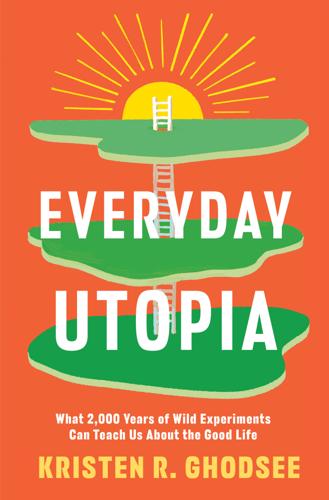
Everyday Utopia: What 2,000 Years of Wild Experiments Can Teach Us About the Good Life
by
Kristen R. Ghodsee
Published 16 May 2023
The French economist Thomas Piketty has called for a progressive supranational wealth tax to combat income inequality.13 The Dutch journalist Rutger Bregman has promoted several utopian visions “for realists,” including open borders and a fifteen-hour workweek.14 In Abundance: The Future is Better Than You Think, Greek-American engineer Peter Diamandis (founder of XPRIZE, which rewards inventors for technological developments that benefit humanity) and science journalist Steven Kotler look to the wonders of artificial intelligence and advances in robotics to propose technological solutions to problems like food scarcity, aging populations, and climate change. And in Fully Automated Luxury Communism, British author Aaron Bastani argues that technologies like cheap solar energy, asteroid mining, and CRISPR gene-editing will lead us into a world of post-scarcity universal health and leisure. For me, one of the most interesting aspects of this popular neo-utopianism lies in its primary focus on the public sphere. Today’s future-positive writers critique our economies while largely seeming to ignore that anything might be amiss in our private lives. But where we reside, how we raise and educate our children, our personal relationship to things, and the quality of our connections to friends, families, and partners impact us as much as tax policies, the price of energy, or the way we organize formal employment.
…
But we must reject the ubiquity of cynicism and dejection. Which brings me back to Star Trek. Anything Is Possible In 2017, after a twelve-year hiatus, a new show joined the franchise. Launched as a prequel to the original series, Star Trek: Discovery introduced a new generation of viewers to Gene Roddenberry’s post-scarcity world of the United Federation of Planets, the intergalactic union of semi-independent civilizations.47 Starfleet is the Federation’s research, defense, and diplomatic arm, operating as a uniformed force of multispecies space Samaritans who must follow a strict code of conduct.48 The Discovery is a special Starfleet science vessel conducting research in the mid-twenty-third century.
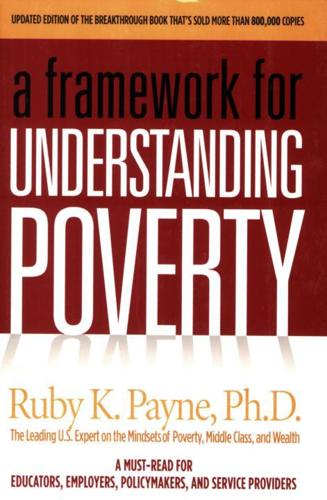
A Framework for Understanding Poverty
by
Ruby K. Payne
Published 4 May 2012
It, in essence, supports "the existence of a permanent `culture of poverty,' an argument first advanced in the modern American context by political scientist Edward Banfield in a 1970 book." Freedom is now defined by the amount of choice a person has and by "the development of human resources of men and women in a post scarcity society." "Results from the Michigan Panel Study of Income Dynamics suggest that the majority of these children will not escape poverty throughout their childhood, making the intergenerational transmission of poverty more likely" (Duncan, 1984, 1991). ("These" children refers to those "living in chronic material hardship.")
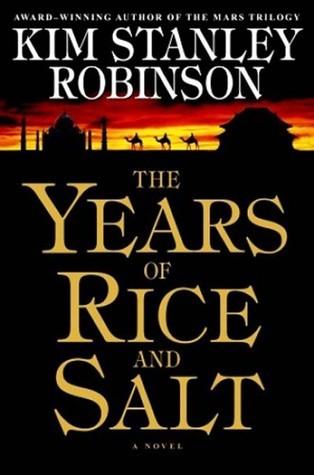
The Years of Rice and Salt
by
Kim Stanley Robinson
Published 2 Jun 2003
They are curiously modern in certain respects. Because they had the basics of agriculture – squash, corn, beans and so on – and had a small population to support in a forest that provided enormous numbers of game animals and nut bearing trees, they lived in a pre scarcity economy, just as we now glimpse a technologicallycreated post scarcity state in its theoretical possibility. In both, the indi vidual receives more recognition as a value bearer him or herself, than does the individual in a scarcity economy. And there is less domination of one caste by another. In these conditions of material ease and plenty, we find the great egalitarianism of the Hodenosaunee, the power wielded by women in their culture, and the absence of slavery – rather the rapid incorporation of defeated tribes into the full texture of the state.
…
Whereas in the north it was completely different, first because the Hodenosaunee were able to defend themselves in the depths of the great eastern forest, never fully succumbing to either the Chinese or to the Islamic incursion from across the Atlantic, and second because they were much less susceptible to Old World diseases, possibly because of early exposure to them from wandering Japanese monks, traders, trappers and prospectors, who ended up infecting the local populace in small numbers, thus serving in effect as human inoculants, immunizing or at least preparing the population of Yingzhou for a fuller incursion of Asians, who did not have quite as devastating an effect, although of course many people and tribes did die.' Bodur moved on, thinking about the notion of a post scarcity society, which in hungry Nsara she had never heard of at all. But it was time for another session, a plenary affair that Budur did not want to miss, and which turned out to be one of the most heavily attended. It concerned the question of the lost Franks, and why the plague had hit them so hard.
…
'I begin to think that this matter of "late emergent properties" that the physicists talk about when they discuss complexity and cascading sensitivities, is an important concept for historians. justice may be a late emergent property. And maybe we can glimpse the beginnings of it emerging; or maybe it emerged long ago, among the primates and proto humans, and is only now gaining leverage in the world, aided by the material possibility of post scarcity. It is hard to say.' He smiled again his little smile. 'Good words to end this session.' His final meeting was called 'What Remains to be Explained', and consisted of questions that he was still mulling over after all his years of study and contemplation. He made comments on his list of questions, but not many, and Bao had to write as fast as he could to get the questions themselves recorded: What Remains to be Explained Why has there been inequality in accumulation of goods since the earliest recorded history?
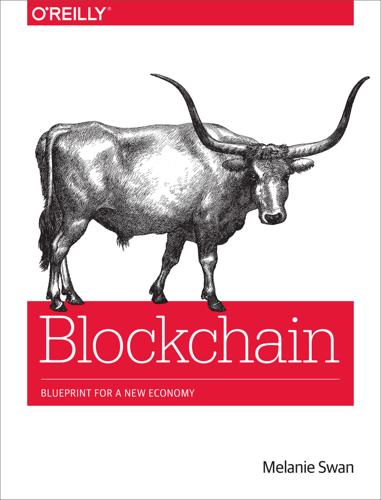
Blockchain: Blueprint for a New Economy
by
Melanie Swan
Published 22 Jan 2014
Rethinking Money: How New Currencies Turn Scarcity into Prosperity London: Berrett-Koehler Publishers, 2013. 175 Swan, M. “Social Economic Networks and the New Intangibles.” Broader Perspective blog, August 15, 2010. http://futurememes.blogspot.com/2010/08/social-economic-networks-and-new.html. 176 ———. “New Banks, New Currencies, and New Markets in a Multicurrency World: Roadmap for a Post-Scarcity Economy by 2050.” Create Futures IberoAmérica, Enthusiasmo Cultural, São Paolo Brazil, October 14, 2009. 177 ———. “Connected World Wearables Free Cognitive Surplus.” Broader Perspective blog, October 26, 2014. http://futurememes.blogspot.com/2014/10/connected-world-frees-cognitive-surplus.html. 178 Lee, T.B.
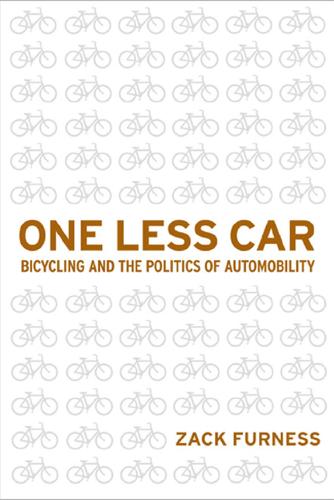
One Less Car: Bicycling and the Politics of Automobility
by
Zack Furness
and
Zachary Mooradian Furness
Published 28 Mar 2010
For more on primitivism, see John Zerzan’s Elements of Refusal (Columbia, MO: Cal press, 1999) and Running on Emptiness: The Pathology of Civilization (los angeles: Feral House, 2002). Fifteen, “petroleum Distillation,” Choice of a New Generation (lookout! records, 1989), lp. Mumford, Technics and Civilization, 21. This view is well put in Murray Bookchin, Post-scarcity Anarchism (Berkeley, Ca: ramparts press, 1971). With respect to “technoskepticism,” i concur with andrew ross when he describes this disposition as a necessary condition for social change in “Hacking away at the Counterculture,” Postmodern Culture 1, no. 1 (1990): 39. For one of the best analyses of the political prospects and limitations of technoskepticism, see Carol Stabile, Feminism and the Technological Fix (Manchester, UK: Manchester University press, 1994).
…
“introduction: impossibilities of automobilities.” in Against Automobility, edited by Steffen Böhm, Campbell Jones, Chris land, and Matthew paterson, 3–16. Malden, Ma: Blackwell/Sociological review, 2006. Bonham, Jennifer. “Transport: Disciplining the Body That Travels.” Sociological Review 54, no. s1 (2006): 55–74. Bookchin, Murray. The Limits of the City. new york: Harper and row, 1974. ———. Post-scarcity Anarchism. Berkeley, Ca: ramparts press, 1971. ———. Social Anarchism or Lifestyle Anarchism: The Unbridgeable Chasm. San Francisco: aK press, 1995. Boothroyd, Sarah. “Spraypaint Slingers, Celebration, and a Tidal Wave of Outrage.” in Critical Mass: Bicycling’s Defiant Celebration, edited by Chris Carlsson, 23–29.

Content: Selected Essays on Technology, Creativity, Copyright, and the Future of the Future
by
Cory Doctorow
Published 15 Sep 2008
Table of Contents About Doctorow: Cory Doctorow (born July 17, 1971) is a blogger, journalist and science fiction author who serves as co-editor of the blog Boing Boing. He is in favor of liberalizing copyright laws, and a proponent of the Creative Commons organisation, and uses some of their licenses for his books. Some common themes of his work include digital rights management, file sharing, Disney, and post-scarcity economics. Source: Wikipedia Also available on Feedbooks for Doctorow: I, Robot (2005) When Sysadmins Ruled the Earth (2006) Down and Out in the Magic Kingdom (2003) Little Brother (2008) After the Siege (2007) All Complex Ecosystems Have Parasites (2005) I, Row-Boat (2006) Printcrime (2006) Someone Comes to Town, Someone Leaves Town (2005) Eastern Standard Tribe (2004) Copyright: Please read the legal notice included in this e-book and/or check the copyright status in your country.
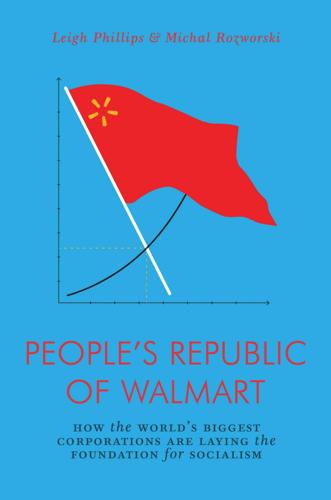
The People's Republic of Walmart: How the World's Biggest Corporations Are Laying the Foundation for Socialism
by
Leigh Phillips
and
Michal Rozworski
Published 5 Mar 2019
This was, all of a sudden, a frowning but managerial kind of a place, a civil and technological kind of a place, all labs and skyscrapers, which was doing the same kind of things as the west but threatened—while the moment lasted—to be doing them better … The era when the place seemed to be in a state of confident, challenging, expansive maturity has fallen off our mental carousel. Khrushchev was so confident in his country’s growing prosperity that he predicted the USSR would overtake the US economy by 1970, reaching aspects of the fully equal, post-scarcity society of luxurious abundance and ever-shrinking requirements of labor promised by Marx—from each according to their ability, to each according to their need—by 1980. But we all know that nothing remotely like this occurred. So what stalled the Soviet economy? The economist Alec Nove, whom we have met before in this book, argues that planning inevitably leads to authoritarianism.
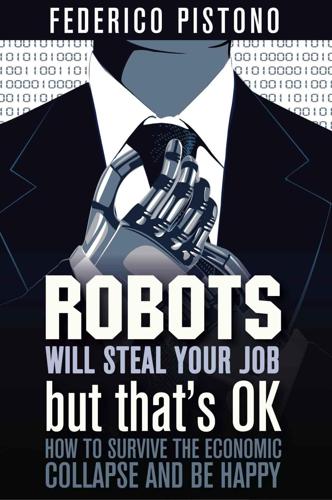
Robots Will Steal Your Job, But That's OK: How to Survive the Economic Collapse and Be Happy
by
Pistono, Federico
Published 14 Oct 2012
I will just give you one example, but there are many. Marcin Jakubowski is an incredible man. There are plenty of people who talk about building a better world. Many have great ideas, too, futuristic visions of how the world could be, if we just wanted to. But one of them is actually building it. His goal: no less than creating a post-scarcity society, where people have to work only 1-2 hours per day to live, so that they can use the remaining time for higher purposes. He is building the foundation for the next paradigm in social evolution, and he is open-sourcing all of it. A visionary, but with solid grounding. The story is best told by Marcin himself, who spoke at TED in 2011.
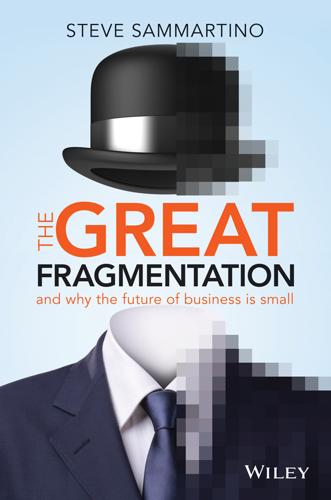
The Great Fragmentation: And Why the Future of All Business Is Small
by
Steve Sammartino
Published 25 Jun 2014
The tools of life and business are now in the hands of everyone. Mass is quickly fragmenting into a world of niche, smaller and more distributed things. And big businesses that need a new survival manifesto need to embrace the fragmented nature if they want to stay ‘big’. We are entering the age of post-scarcity abundance. The great fragmentation isn’t just great because it’s huge or amazing — although, in fact, it really is. It’s much more than that. It’s a move to a more equalised and humane society where the power to know and the power to participate are being handed back to everyone. Both economically and socially, just about everything is being democratised for good.
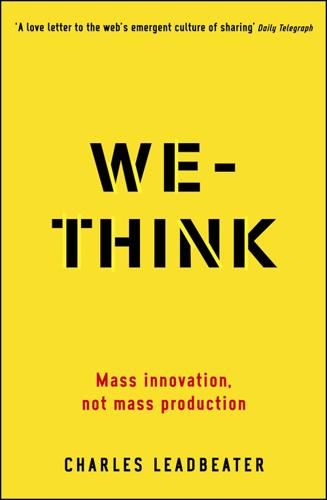
We-Think: Mass Innovation, Not Mass Production
by
Charles Leadbeater
Published 9 Dec 2010
Collage and pastiche, recombining ingredients provided by others, were central not just to Situationism but to futurism, cubism, Dadaism and pop art. The rip, mix, burn generation of Apple iPods, hip-hop music and YouTube videos is Debord’s heir. The We-Think generation is living out the hopes of the 1960s radicals for the creation of a harmonious, post-scarcity society that is free, decentralised and yet apparently egalitarian, a world in which as Fred Turner put it ‘each individual could act in his or her own interest and at the same time produce a unified social sphere, in which we were “all one”’.19 As an offspring of the 1960s the web also carries many of the congenital weaknesses that afflicted the counter-culture.
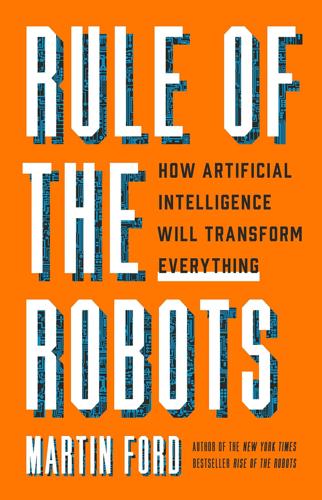
Rule of the Robots: How Artificial Intelligence Will Transform Everything
by
Martin Ford
Published 13 Sep 2021
The key objective is to do everything possible to accelerate the development of this new resource while at the same time evolving our social safety net and regulatory framework in ways that will allow us to mitigate the accompanying risks and ensure that the dividends from AI are shared widely and inclusively. As we navigate this path forward, I think that the future we build may ultimately fall somewhere on a spectrum bounded by two fictional extremes. The most optimistic scenario comes from the television show Star Trek. In this post-scarcity world, advanced technology has created material abundance, eliminated poverty, addressed environmental concerns and cured most disease. No one needs to toil in drudgery at an unrewarding job simply to sustain his or her survival. People in this world are highly educated and pursue challenges that they find rewarding.
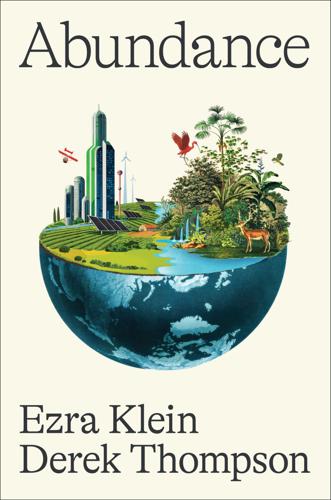
Abundance
by
Ezra Klein
and
Derek Thompson
Published 18 Mar 2025
Our era features too little utopian thinking, but one worthy exception is Aaron Bastani’s Fully Automated Luxury Communism, a leftist tract that puts the technologies in development right now—artificial intelligence, renewable energy, asteroid mining, plant- and cell-based meats, and gene editing—at the center of a post-work, post-scarcity vision.11 “What if everything could change?” he asks. “What if, more than simply meeting the great challenges of our time—from climate change to inequality and ageing—we went far beyond them, putting today’s problems behind us like we did before with large predators and, for the most part, illness?

Death of the Liberal Class
by
Chris Hedges
Published 14 May 2010
The Cradle Will Rock. Fairfax, VA: Library of Congress Federal Theatre Project Collection at Fenwick Library, George Mason University. Bonhoeffer, Dietrich. Works, Vol. 16, Conspiracy and Imprisonment, 1940-1945, trans. by Lisa E. Dahill. Minneapolis, MN: Fortress Press, 2006. Bookchin, Murray. Post-Scarcity Anarchism. Edinburgh: AK Press, 2004. Boorstin, Daniel J. The Image: A Guide to Pseudo-Events in America. New York: Atheneum, 1961. Bourne, Randolph. The Radical Will: Selected Writings 1911-1918. Ed. Olaf Hansen. Berkeley, CA: University of California Press, 1977. ———. War and the Intellectuals: Collected Essays 1915-1919.
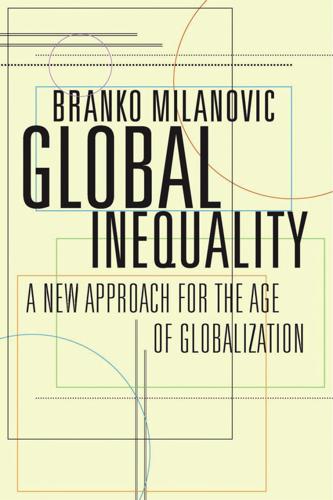
Global Inequality: A New Approach for the Age of Globalization
by
Branko Milanovic
Published 10 Apr 2016
It is also remarkable that the writers of this period were unable to define the “new society” except negatively, that is, by what it no longer was. Hence, the proliferation of “post” prefixes in Bell’s Coming of Post-Industrial Society (1973): a cursory review reveals “post-industrial,” “post-bourgeois,” “post-Marxist,” “post-capitalist,” and “post-scarcity.” 3. Limits to Growth (1972) was also the first report of the Club of Rome. The second report, Mankind at the Turning Point (1974), by Mihailo Mesarovic and Eduard Pestel, was even more quantitative and ostensibly scientific. 4. Sicco Mansholt, then the president of the European Commission, was a strong proponent of zero growth.
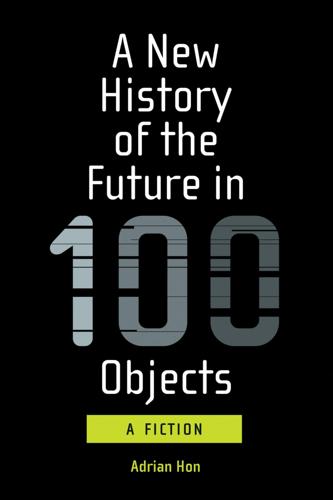
A New History of the Future in 100 Objects: A Fiction
by
Adrian Hon
Published 5 Oct 2020
It was, in a word, fashion. 21 INSURGENCY IN A BOX Durban, South Africa, 2027 If you’ve played a popular costume drama role-playing game such as Star Trek, today’s object might seem familiar. It’s a replicator. In classic science fiction, replicators can instantly materialize more or less any object, exemplifying late twentieth-century utopian post-scarcity thought and inspiring countless scientists and engineers—including the people who made this box. What I have in front of me isn’t a real replicator, of course; they’re still complete fantasy. But it is the first portable and high-quality scanner, a metal and plastic box a little over half a meter on each side with a door on the front.

The Boy Who Could Change the World: The Writings of Aaron Swartz
by
Aaron Swartz
and
Lawrence Lessig
Published 5 Jan 2016
Cory Doctorow is a Canadian-British blogger, journalist, and science fiction author who serves as co-editor of the blog Boing Boing. He is an activist in favor of liberalizing copyright laws and a proponent of the Creative Commons organization, using some of their licenses for his books. Some common themes of his work include digital rights management, file sharing, and post-scarcity economics. His novels include Down and Out in the Magic, Kingdom, and Little Brother. James Grimmelmann is a professor of law at the University of Maryland. He studies how laws regulating software affect freedom, wealth, and power. Astra Taylor is a writer and documentary filmmaker. Her films include Zizek!
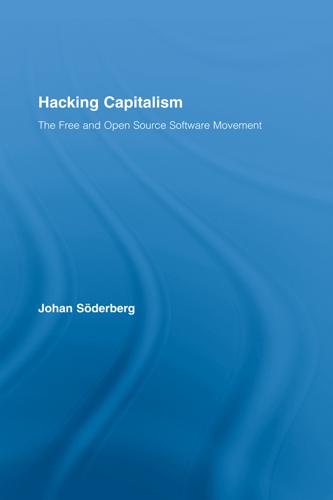
Hacking Capitalism
by
Söderberg, Johan; Söderberg, Johan;
Progressive thinkers have shunned such a proposition, while conservatives have endorsed it, no doubt for much the same reason; it renders familiar forms of struggle ineffective. If semiotic consumption is truly without boundaries, then the increases of productivity in the industry make little difference. Shattered are the hopes for a future of post-scarcity and the unfolding of democratic leisure. Furthermore, the demand of workers for increased purchasing power is emptied of some of its emancipating potential, and thus its legitimacy, if redistribution of wealth only serves to grease the wheels of the system. It is on this ground that Jean Baudrillard wrote his obituary notice over anti-capitalist resistance.
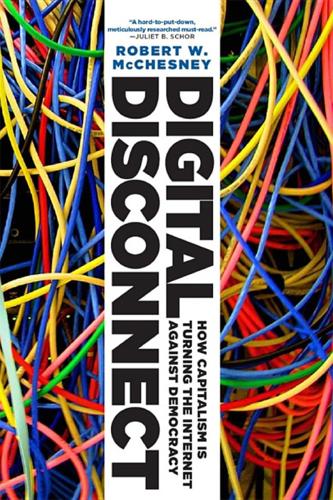
Digital Disconnect: How Capitalism Is Turning the Internet Against Democracy
by
Robert W. McChesney
Published 5 Mar 2013
No matter how much havoc the digital revolution might wreak upon commercial media business models, the Internet offered no solution at all to the core problem of funding and organizing media content. If a shrinking number of people could make a living producing content, what sort of culture would society produce? The online logic seemed as much pre-surplus as post-scarcity, as much Dark Ages as Age of Enlightenment. In short, the need for the PEC, the need to develop effective systems and policies, was and is more important than ever. Journalism I separate news media from the rest of commercial media (entertainment) for three reasons. First, journalism has developed out of a somewhat different tradition than entertainment: from the beginning of the republic, it has been a key part of the governing system and has been understood that way.
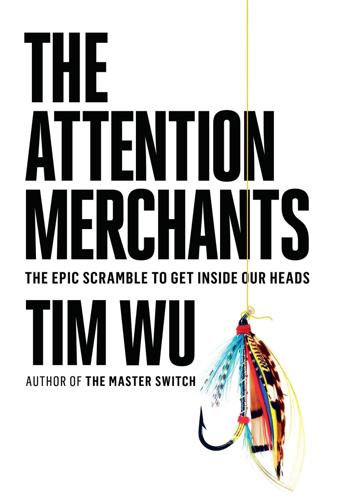
The Attention Merchants: The Epic Scramble to Get Inside Our Heads
by
Tim Wu
Published 14 May 2016
In 2005 Nielsen estimated that 35 million Americans were reading blogs; yet that same year, another organization estimated there were 50 million blogs in existence, suggesting more blogs than readers.10 Collectively, the blogs exerted the influence of a kind of ongoing national conversation. In his somewhat obscure way, Jeffrey Jarvis declared that “in our post-scarcity world, distribution is not king and neither is content. Conversation is the kingdom, and trust is king.”11 In 2006, Time magazine, struggling to stay hip to it all, named “YOU” as its person of the year. “Yes you. You control the information age. Welcome to your world.”12 The journalist Jon Pareles wrote that “ ‘user-generated content’ [is] the paramount cultural buzz phrase of 2006….I prefer something a little more old-fashioned: self-expression.
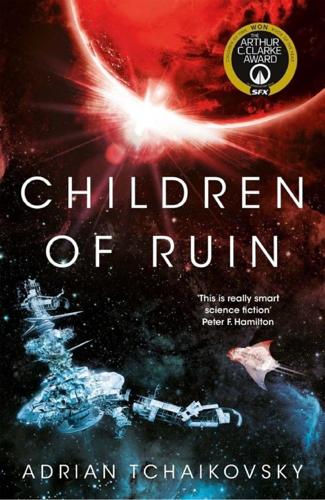
Children of Ruin
by
Adrian Tchaikovsky
Published 13 May 2019
The one piece of knowledge that would bleaken his outlook further would be to know that the mistakes of his people are a mirror for the mistakes of their creators. Lot has like-minded followers, some utopianists who fled with him, others just as desperate and lost, attracted to his almost messianic demeanour. Lot has seen a future of glory and post-scarcity. The experience has marked him out, given his body language and Guise a radiance few others can match. Certainty is not a currency the octopuses are comfortable dealing with, most of the time, but Lot’s followers have lost everything, enough that they will make the cardinal sin of following without question someone who seems to know what they are doing.
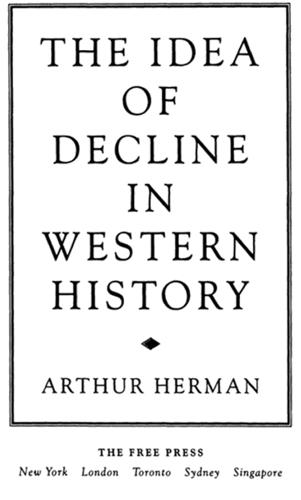
The Idea of Decline in Western History
by
Arthur Herman
Published 8 Jan 1997
The new man would learn to abandon technology and consumerism and accept his humble place in the unity of nature. “Self-assertive man,” he wrote in 1926, “whether or not he knows and wills it as an individual, is the functionary of technology.”35 Heidegger’s student Herbert Marcuse brought these assumptions to his own view of “post-scarcity society” in One-Dimensional Man. Its bold images of a technological capitalism poised to subjugate the vital energies of man as well as nature infused German cultural pessimism into the New Left. Marcuse galvanized American conservationist sentiments on the Left, which derived from the writings of figures like Henry David Thoreau and John Muir.
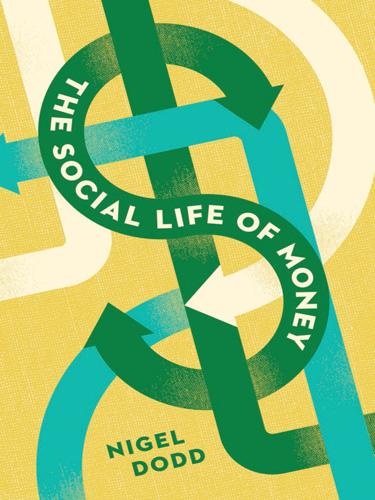
The Social Life of Money
by
Nigel Dodd
Published 14 May 2014
“Grassrooting the Space of Flows.” Urban Geography 20 (4): 294–302. Chaum, D. (1983). “Blind Signatures for Untraceable Payments.” Advances in Cryptology: Proceedings of Crypto 82. D. Chaum, R. L. Rivest, and A. T. Sherman, Eds. New York, Plenum Publishing Corporation. Chernomas, R. (1984). “Keynes on Post-Scarcity Society.” Journal of Economic Issues XVIII (4): 1007–26. Chick, V. and S. C. Dow (2013). “Financial Institutions and the State: A Reexamination.” Monetary Economies of Production: Banking and Financial Circuits and the Role of the State, L.-P. Rochon and M. Seccareccia, Eds.. Cheltenham, U.K., Edward Elgar Publishing: 99–111.
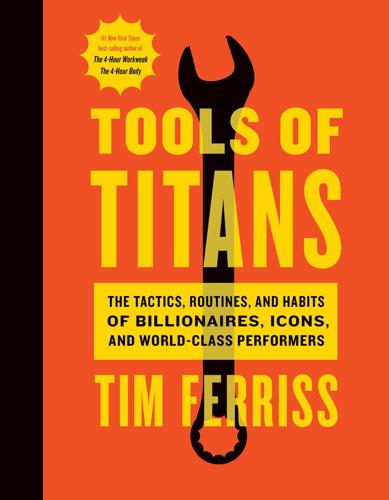
Tools of Titans: The Tactics, Routines, and Habits of Billionaires, Icons, and World-Class Performers
by
Timothy Ferriss
Published 6 Dec 2016
In 2013, Godin was inducted into the Direct Marketing Hall of Fame. Recently, Godin turned the book publishing world on its ear by launching a series of four books via Kickstarter. The campaign reached its goal in just three hours and became the most successful book project in Kickstarter history. “Trust and attention—these are the scarce items in a post-scarcity world.” “We can’t out-obedience the competition.” TF: I like this so much that I wanted to mention it twice. More context next time. Be a Meaningful Specific Instead of a Wandering Generality On saying “no” and declining things: “The phone rings, and lots of people want a thing.